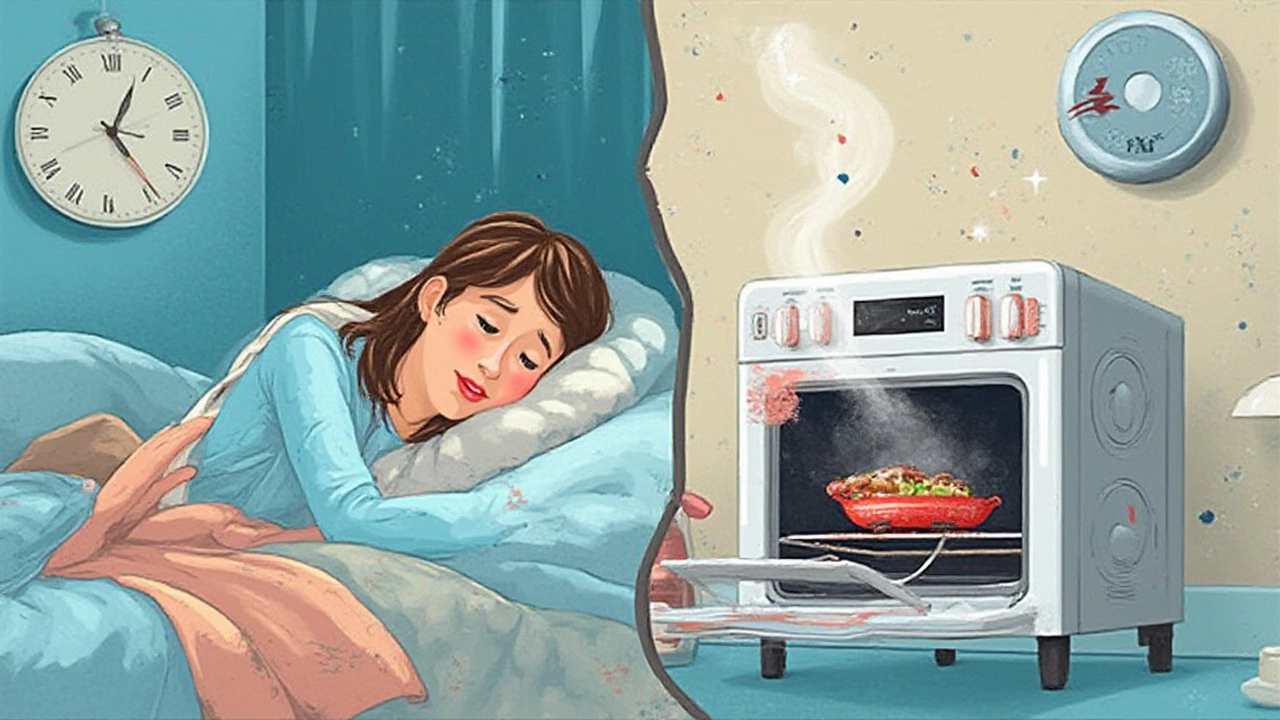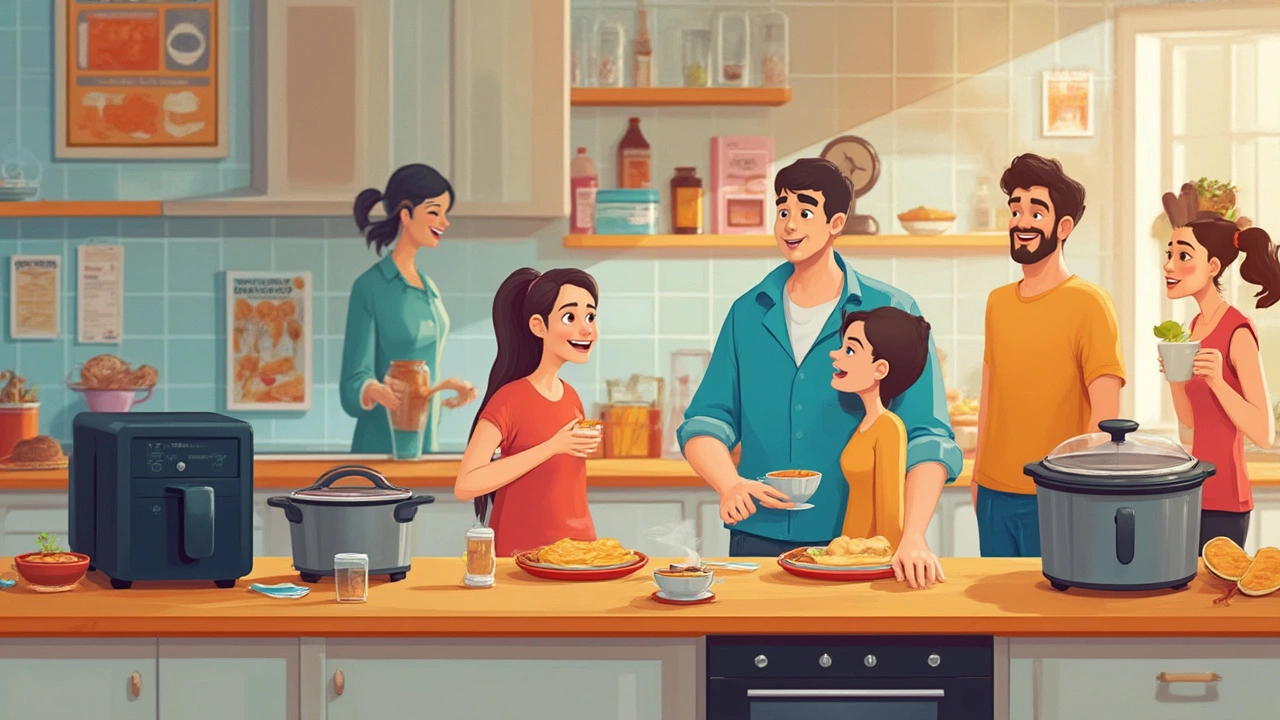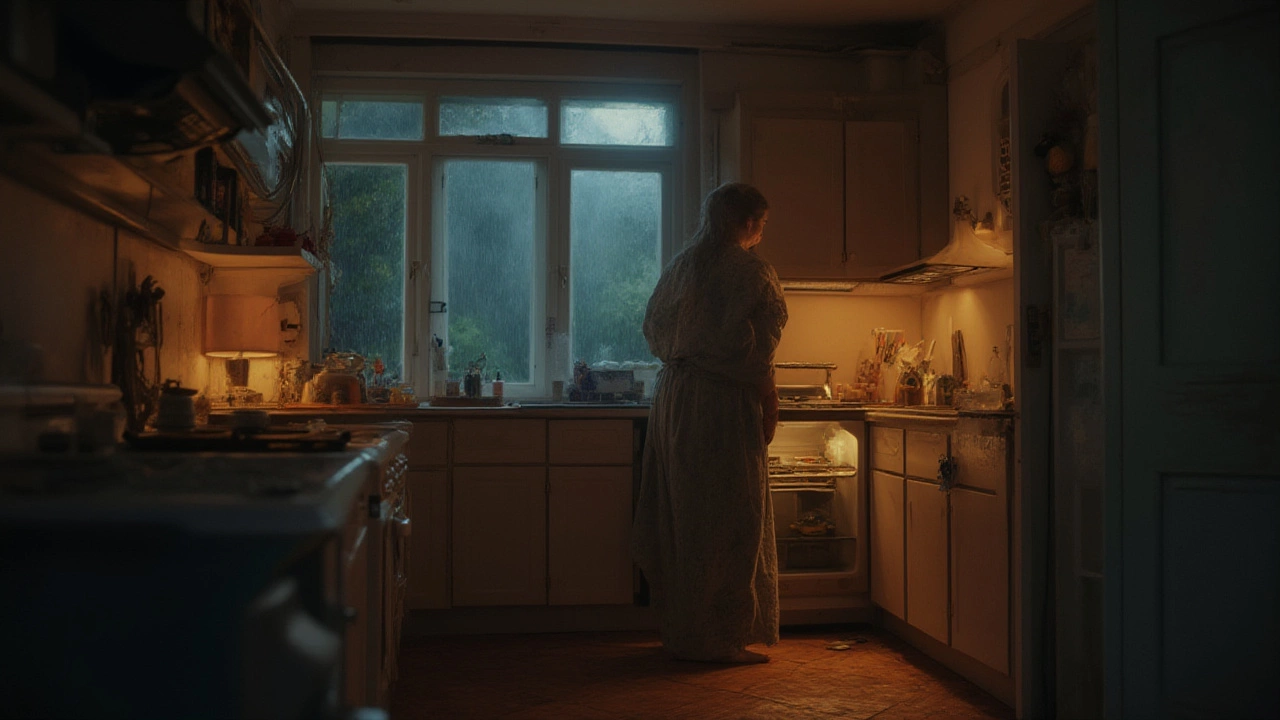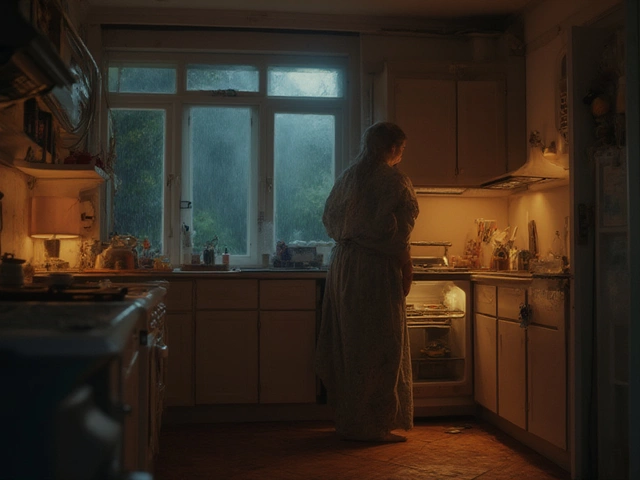Picture this: it’s midnight, you’re about to go to bed, and you remember your lasagna—still baking. Maybe you’re tempted to let the electric oven keep doing its thing overnight. It seems convenient and harmless. But is it really? Most people don’t realize the hidden dangers of leaving an electric oven running unattended for hours. We're talking silent fire risks, wasted energy, expensive repairs, and more.
What Happens When You Leave an Electric Oven On All Night?
Leaving an electric oven running while you sleep doesn’t just waste electricity—it changes the atmosphere in your home. Ovens are designed for short, monitored bursts of use, not all-nighters. When left on for hours, the constant exposed heat keeps warming the air and anything near it. Even if you set it on low, the coils or heating elements inside are still working hard. This leads to several potential problems.
First, there’s the ever-present risk of fire. Studies from the UK’s National Fire Chiefs Council in 2022 show that ovens started around 33% of kitchen fires that resulted in property damage. Most of these started because someone forgot and left the appliance unattended—even for an hour or two. While electric ovens don’t use open flames, the constant heat can still ignite leftover grease, splattered food, or even nearby items like oven mitts.
A few people might assume electric ovens “just turn off” or stay totally safe compared to gas. That’s not how it works. Electric ovens operate on high-wattage (many well over 2400W) and old wiring or a faulty thermostat can cause overheating or a short circuit. That’s why insurance adjusters look so closely at electrical safety when fires are investigated. It's impossible to predict when a cheap wire, cracked plug, or stuck relay will fail. And if your oven’s age is more than 7-8 years, the risk goes up each year unless you keep it well-maintained.
There’s another point people overlook: air quality. Kitchens can fill up with fumes, especially if there’s spilled food inside. The longer your oven burns, the longer your home “cooks” these invisible gases. According to the Environmental Protection Agency (EPA), even electric ovens release volatile organic compounds (VOCs) as bits of food carbonize over many hours. With no ventilation, your overnight oven can reduce indoor air quality while you sleep, leading to headaches or worse for anyone with asthma or allergies.
On a lighter note, people have shared their regrets on social forums—one guy in London posted his ruined chicken (blackened and hard as a brick), but at least he didn’t end up with a house fire. Others haven’t been so lucky, as seen in local news stories from California to Manchester: sparks, smoke, scorched cabinets. Leaving any appliance running unattended this long invites a long night of bad luck.
The Main Risks: Fire, Health, and Damage
Everyone knows that using an oven means heat, but not everyone recognizes just how easy it is for things to go wrong when no one’s nearby. Unattended cooking is the single biggest cause of kitchen fires according to the National Fire Protection Association (NFPA). Their 2023 report revealed that cooking appliances are involved in 49% of all reported home fires. Electric ovens weren’t responsible for every spark, but they played a major part.
So what are you really facing if you go to bed with the stove baking? The first risk is ignition—from scraps, crumbs, or fat in the drip pan. Even nonstick oven liners have caused surprises, melting or catching at high temps. And if something inside your oven (let’s say a pizza box—big mistake) is left too close to the elements, that’s a recipe for disaster.
- Fire risk: Any leftover food, food packaging, or dirty oven surfaces can catch fire after hours of exposure to high temperature.
- Short-circuit or electric failure: Even a small wiring issue can smolder for hours before tripping the breaker—or not at all, until visible smoke appears.
- Cracked glass or warped parts: Ovens aren’t designed to stay hot for 8-12 straight hours. Continuous heat can stress the door glass, damage gaskets, and warp racks.
- Toxic fumes: Carbonized food and burnt coatings release VOCs. These are particularly nasty for children, older adults, and anyone with breathing problems.
- Wasted electricity: The average electric oven draws about 2-3 kWh per hour. Leaving it on all night can add 16-20 kWh to your bill—enough to run your fridge for two weeks.
It’s not just about money or even health—it’s about the whole house. Many insurance policies have a “negligence” clause for fire claims. If adjusters discover you deliberately left an oven running while you slept, your coverage payout might disappear. That’s a rough lesson when you’re dealing with smoke damage, lost appliances, or worse.
| Risk | Chance When Unattended | Direct Consequence |
|---|---|---|
| Fire ignition (crumbs, spills) | High | House fire, smoke damage |
| Short-circuit (old wiring) | Medium | Circuit breaker trip, possible burn or fire |
| Oven glass cracking/warping | Medium | Expensive repair, ruined oven |
| Poor air quality (VOCs, smoke) | High | Headaches, breathing issues |
| High electricity usage | Always | Large electric bill |
Health issues aren’t rare. If you leave an oven on in a tightly closed apartment, you might wake up with sore eyes, a headache, or dry throat from lingering burnt food vapors. Pet owners have reported cats and dogs acting odd after a long night of oven use, too.

Common Myths About Leaving Ovens On Overnight
Lots of people swap stories about leaving things on “all the time” and nothing going wrong. You’ve probably heard them: “Electric ovens don’t catch fire,” “Modern appliances have safety shut-offs,” or “I do it all the time, no problems.” It’s easy to see why these myths spread—after all, most nights you probably wake up and your kitchen looks just fine.
The first myth—electric ovens can’t start fires—just isn’t true. The UK Home Office’s 2023 data showed that over a thousand fires started with electric ovens every year. No open flame doesn’t mean zero risk. Coil elements get hot enough to ignite fat, paper, and even some plastics.
Another common belief: all modern ovens have automatic shut-off. Not really. Some smart ovens, especially premium models released in the last three years, do have timers that turn the appliance off after a set time. But most ovens, especially budget or standard models made before 2021, will keep running until you twist that knob or press the “Off” button. If you haven’t read your manual cover to cover, don’t assume your oven will save you automatically.
There’s also the “I always leave it on for low-and-slow cooking, nothing ever happens” argument. Slow-roasting is popular, especially for tough cuts of meat, but even big brands like GE, Bosch, and Whirlpool don’t recommend leaving domestic ovens running without someone awake in the home. Restaurant ovens are built for it; residential models are not. Oven repair technicians—real ones, not just online advice—regularly post stories about scorched units and tripped breakers, many from people following the “overnight roast” myth.
Here’s a quick scam to avoid: “energy-saving” devices that claim to make overnight oven use safer by regulating voltage. No commercial plug-in sold on Amazon or similar sites is approved by any major safety board for this. Most are just glorified surge protectors. Don’t rely on gadgets alone for your kitchen safety.
Better Alternatives: Safe Late-Night Cooking Solutions
If you want a hot meal waiting in the morning or a perfect overnight roast, you’ve got options that don’t put the house at risk. Slow cookers, countertop roasters, and smart multicookers (like the Instant Pot) are built for long, low-temperature cooking. They use less energy (typically under 300W), produce fewer fumes, and are less likely to overheat or catch fire. They also come with reliable timers and auto-shutoff systems—important if you’re prone to snoozing before dinner is done.
Here’s a quick comparison:
| Appliance | Typical Power Draw | Built-In Safety Features | Recommended Usage |
|---|---|---|---|
| Electric Oven | 2400W+ | Basic temp control | Monitored, short-term cooking |
| Slow Cooker | 200-300W | Auto shut-off, low heat | Overnight, long cooking |
| Instant Pot | 700-1000W | Pressure sensor, timers | All-day or overnight |
If you must use your oven for a recipe that needs hours, set a kitchen timer or an alarm to check frequently—and never leave home or go to sleep with it running. Some people install a Wi-Fi camera facing their oven, but nothing beats an old-fashioned double check.
- Double check your recipe: Is it okay to finish cooking in a slow cooker or Instant Pot instead?
- Prep food in advance so you don’t have to rush late-night baking.
- Clean your oven regularly—crumbs and grease are fire starters.
- If your oven is older than 8 years, book an annual check with a qualified repair tech to catch wiring or thermostat issues.
Wall ovens and ranges with a timer function can be a little safer if used correctly, but don’t rely on them to “babysit” your appliance. Double checking beats every built-in safety feature, hands down.

Keeping Your Kitchen Safe: Tips and Real-World Advice
If you’re worried now, you’re not alone. Oven fires don’t always make the news, but fire departments report hundreds of small incidents every week. I’ve seen plenty of kitchens during my days working with local repair teams—burnt surfaces, warped knobs, melted door gaskets. Every time someone called us after an “overnight oven disaster,” the shock on their face said it all. It’s never worth it for the sake of a slow roast.
Here are simple steps to keep your kitchen—and your nerves—safe. First, always check the oven before bed. Get in the habit of making it your last stop after you lock up at night. Toss a sticky note on the fridge if you forget easily. Teach kids and forgetful adults the same drill.
- Never store anything in your oven unless it’s oven-safe cookware—and definitely no plastic, foam, or cardboard.
- Always check power cords, plug sockets, and the oven’s main knob for signs of wear or odd smells. Faulty wiring is the silent assassin of household appliances.
- Install a smoke detector in or near the kitchen (but not directly above the oven, or you’ll set it off every pizza night).
- If you must cook slowly, use an appliance built for it—like a slow cooker, countertop roaster, or pressure cooker.
- If something burns or smokes, turn everything off and open windows right away—don’t try to “cook through it.”
A lot of home fires start with good intentions. Maybe you just wanted tomorrow’s dinner to be ready or thought a low heat was safe enough. Don’t risk it. Follow the smart path: use specialty appliances for slow cooking, never go to bed with your oven running, and get in the habit of double-checking your kitchen before you sleep. Your insurance, your lungs, and your leftover lasagna will thank you—and your house will still be standing in the morning.


